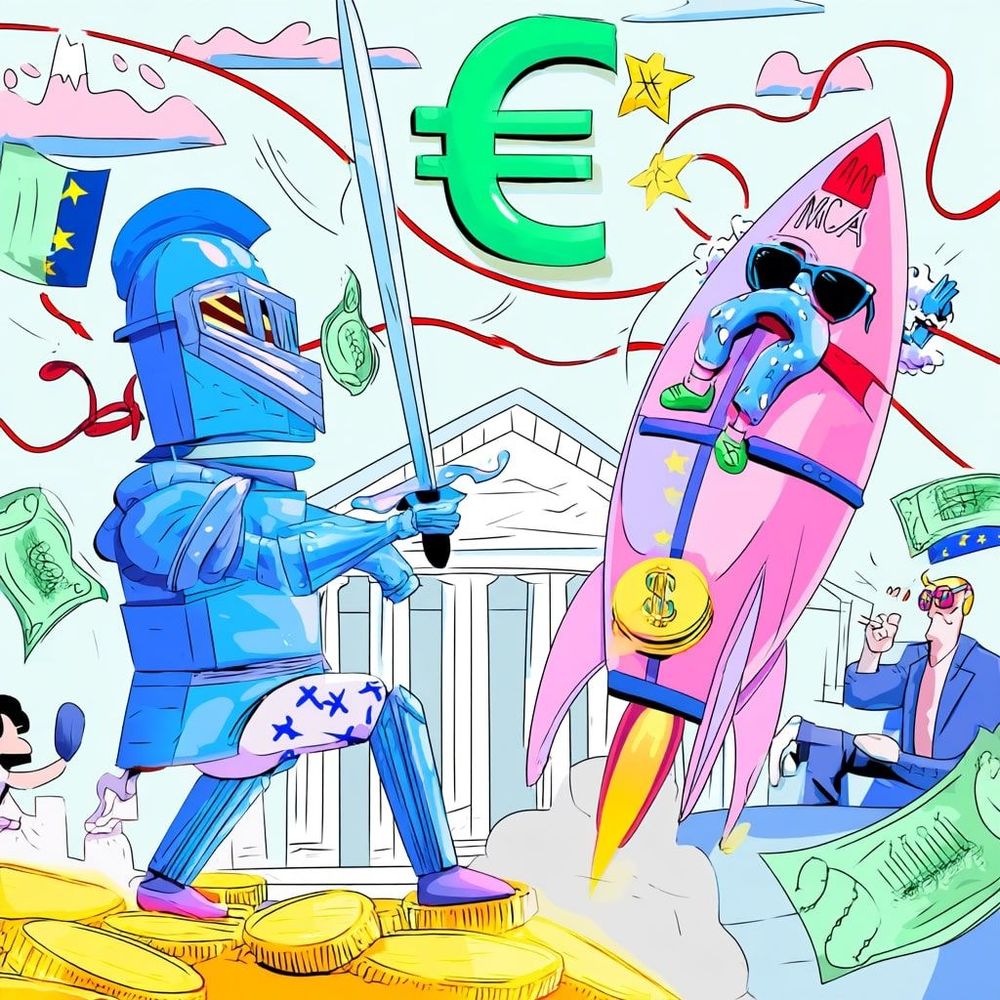Big Brother Currency? The ECB Wants to Replace Your Cash with a Digital Euro
🧠 A Digital Euro That Might Kill Half of Europe’s Cash
The European Central Bank just dropped a bombshell: its upcoming digital euro could replace up to 50% of physical cash and a third of all bank deposits. What sounds like a fintech upgrade is actually a power move — one that could reshape Europe’s entire financial system.
Forget about stablecoins. Forget about Visa. The ECB wants to own your wallet, your money rails, and maybe even your data.
💻 What Is the Digital Euro, Really?
It’s not Bitcoin.
It’s not USDT.
It’s not your Revolut card.
The digital euro is a central bank digital currency (CBDC) — basically, state-issued digital cash that lives in your phone and is controlled by the ECB.
It’s programmable, traceable, and comes with no interest, just like cash. But here’s the twist: you wouldn’t need a bank anymore. You’d hold euros in a digital wallet directly from the ECB or its licensed partners.
📉 What’s It Replacing?
According to the ECB’s own simulations:
- For every 10 digital euros issued, 5 physical euros vanish.
- And 3 out of 10 will come from bank deposits being converted into digital euros.
That means the ECB is pulling value away from commercial banks — and into its own hands.
Let’s not sugarcoat it: bankers are sweating.
🏦 Why the Banks Are Nervous
Here’s what happens if users move their savings to ECB-backed wallets:
- 🏃 Less money for banks to lend
- 📈 Higher interest rates needed to keep deposits
- 📉 Smaller banks may buckle under the pressure
The ECB says it’ll cap wallet balances (a few thousand euros max) to prevent a digital bank run. But everyone sees the writing on the wall: power is shifting.
🕵️ Privacy or Panopticon?
The ECB swears this thing will be private, with “cash-like anonymity.”
But let’s be real — CBDCs are programmable. That means:
- ✅ Transactions could be limited by location, time, or purpose
- ❌ Governments could block certain purchases
- 🕵️♂️ Surveillance becomes a feature, not a bug
Sure, the ECB says it won’t collect user data, but the intermediaries will — and you can bet regulators will want access.
🇪🇺 Why the EU Is Doing This
The official reason? “Digital sovereignty.”
- 13 out of 20 eurozone countries depend on foreign card networks (Visa, Mastercard).
- Dollar-backed stablecoins are on the rise.
- The EU wants control — over money, payments, and the infrastructure that powers them.
“Without a digital euro, we risk ceding our payment system to outsiders,” said ECB board member Piero Cipollone.
Translation: The EU wants its own weapon in the digital finance arms race.
📅 What’s Next?
- ✅ The preparation phase started in November 2023.
- 🛠️ A rulebook, wallet prototypes, and retailer engagement are underway.
- ⚖️ A legal proposal is expected late 2025.
- 🚀 Pilot programs may follow. Full rollout? TBD.
🌐 Europe Isn’t Alone
- 🇨🇳 China’s digital yuan is already in public trials.
- 🇧🇸 The Bahamas launched its Sand Dollar in 2020.
- 🌍 Over 130 countries are working on CBDCs.
📲 What It Means for You
- It’ll be free to use, like cash
- It won’t pay interest, unlike your savings account
- You can spend it online, offline, or phone-to-phone
- And yes, cash will still exist... for now
But make no mistake: the EU is building a cash-lite economy, and the ECB is at the center of it all.
✅ TL;DR
- 🏛️ The digital euro could replace 50% of cash and 30% of deposits
- 🧠 It’s programmable money issued by the ECB, not banks
- 🧍♂️ You’d hold funds in a central bank wallet, not your local branch
- 🔐 Privacy is promised, but many are skeptical
- 💥 This is about monetary control, not just convenience
- ⚠️ It’s the biggest money redesign in Europe since the euro launched
The digital euro is coming.
The only question is — will it free you, or follow you?

Recent News
All Time High • Live
Have questions or want to collaborate? Reach us at: [email protected]










